How is the government doing?
Norsang Lama, social worker: The Maoist-led government has not been able to work effectively and efficiently. Instead of decreasing the problems, it is increasing them. The government has sidelined the task of writing the constitution and is stuck over small issues. 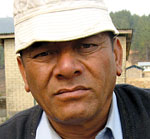
Surya Tamang, Yu-Shyung Hyolmo Mongolian Youth Society: Everyone, including those in the government, talk of the New Nepal, but the work they do remains unchanged. They had made many promises, but it does not look like they will fulfil them. Those who had pledged to work for the people should not lie and cheat now that they are in the government. 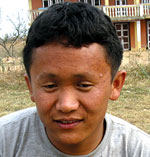
Netra Bahadur Bhujel, teacher: The Maoists are in government but there is no peace. Law and order has broken down, things are worse in the Tarai now than during the war. People are displaced. The government seems to have closed its eyes to the terrifying situation in the Tarai. 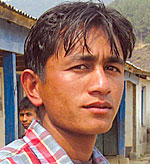
What kind of federal setup should the new Nepal have?
Surya Tamang: Regardless of which party is in the government, they should adopt policies that facilitate development. It is not necessary to designate states to the different ethnic groups.
Munsing Pakhrin Tamang, Satdhara Youth Jagaran Club: Right now we hear demands for ethnicity-based states like Tamsling, Magarat and Tharuhat. Such a division will lead to disintegration and there is danger that in future we will again have Baise and Chaubise states like in the past. Development efforts will stop. Federalism should not be based on ethnicity, it should facilitate development. 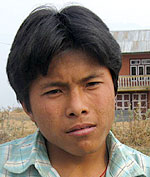
Jimi Tamang: Turning the existing five development regions into federal states is a good option. Kathmandu should remain the centre. The names of the state should not be based on any caste, language or religion. Instead, the name should be formed through discussions with intellectuals of that region and should be based on geography. We should renounce the idea of Madhesi, Tamsaling, Khumbuwan, Magarat or Tharuhat and create states that reflect unity. Although I am a Tamang I don't agree with the ethnic division of the states, they should be demarcated along geographic lines. 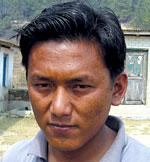
Norsing Lama: Creating ethnic-based provinces will invite conflict. We are Nepalis first. Demands for Tharuhat, or One Madhesh are not right. Here in Sindhupalchok, there is a call for a Tamang state. This is not right either. Because it's not just us Tamangs who live here. Future provinces should include everyone.
Mahanta Yadab, Ishing Primary School principal: We have to establish One Madhes One Pradhes, but there should be no caste-based discrimination. Whether you are a Chettri or Bahun, a Yadab or a Tamang, those who live in Madhes are Madhesi. 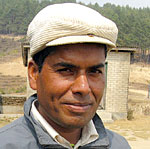
Purnima Giri, teacher: We have to unite for development regardless of our ethnicity or religion. Nepal won't be able to develop if we divide the states according to ethnicity. 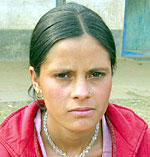
We have to create an environment where everyone can peacefully live together
and work.
What are your views on affirmative action?
Surya Tamang: We need inclusive policies to maintain political stability.
It will only if possible if the new constitution includes the rights of discriminated sections of society like women, ethnic groups and dalits. One does not always get the chance to write the constitution with the direct participation of the people. We have to utilise this opportunity to include all sectors and areas.
Jimi Tamang: We have become inclusive to some extent after the CA elections. There is still the need to adopt inclusive policies in all government bodies and the private sector. Tamangs constitute the second largest indigenous group, but no Tamang has become a CDO yet. There are Tamang doctors, engineers, pilots and policemen. The army has to be inclusive too, not just on the lower level but higher level as well. Why haven't the women received 50 per cent reservation?
Narayan Giri: The provision for reservation should be made for underprivileged communities and ethnic groups so they can catch up. But only for some time, otherwise there will be no competition and the quality will go down. We shouldn't lay too much emphasis on reservation. 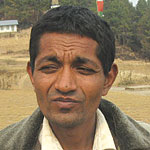
Daya Laxmi Shrestha: Women, dalits and indigenous groups have to be provided reservation. Otherwise they will not be able to compete with the privileged groups. I became a teacher in this school through competition among women. I don't think I would have reached here if I had to compete with men. 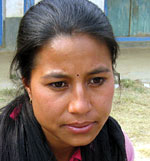
Netra Bahadur Bhujel: The idea of affirmative action sounds very good. But it makes people less competitive. The culture of relying on reservation will not motivate people to work hard and improve themselves.
The judiciary in a federalism
Prof Siegfried Bross is a judge at the Federal Constitutional Court of Germany and chairman of the Executive Committee of the German Section of the International Commission of Jurists. He was in Nepal last week for a GTZ program to support the constitution-building process. Bross spoke to Nepali Times about how the judiciary should function in a federal structure.
Nepali Times: How practicable is a federal system in a multi ethnic country like Nepal? 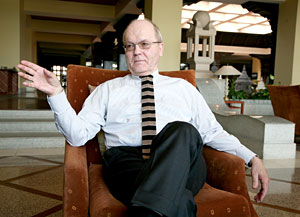
Prof Siegfried Bross: Actually, a federal system is desirable in a multi ethnic set-up like Nepal. It can accommodate different cultures and ethnicities. This does not mean drawing up states based on ethnic grounds only and marginalising other communities, but giving them the freedom to run their own government. This structure does not mean ceding to separatist aspirations but allowing certain groups to live within their own jurisdiction.
But there is no majority of a particular ethnic community in a particular place.
You should look at it from a local level and see which different groups live together. It is not possible to draw boundaries based on ethnicity alone. We should take into account the geography, infrastructure, economy and cultural identities of different communities. For instance, there are certain minorities in Germany. They have been able to preserve their own culture and language at a local level. The provinces will have their own statute. This can refer to setting holidays depending on the local culture and traditions, creating a sense of tolerance and giving other people a say. Strengthening provinces strengthens central government at the same time. There can be a three-tier government?central, provincial and local for better governance.
What kind of a judicial system could be applicable to Nepal?
In a federal system, there should be a court at the provincial level. There should be Supreme Court at the centre and also a separate Constitutional Court which is independent from the Supreme Court. One of the reasons for setting up the Constitutional Court is to take into account the diversity of the people within the country through the appointment of the judges.
Why do we need a Constitutional Court?
We have to look at its composition first. It is made up of professional judges, lawyers and legal scientists, which is impossible at the Supreme Court. The judges' independence is ensured because they are not allowed to serve more than 12 years and cannot be re-elected. Although there aren't different ethnicities in Germany, following this principle, different judges from different provinces come to the court so it ensures a much greater ethnic representation.


